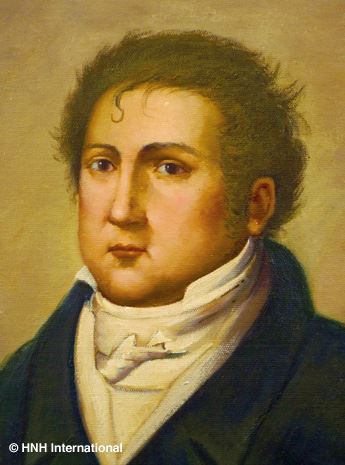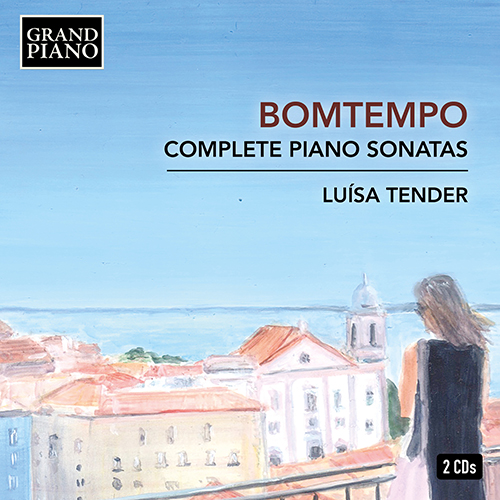
João Domingos Bomtempo (1771 - 1842)
João Domingos Bomtempo (1775–1842) was born in Lisbon 16 years after the great Lisbon earthquake, at a time when the Marquis of Pombal (1699–1782) was prime minister of Portugal under King José I (1714–1777). Bomtempo was contemporaneous to the Napoleonic invasions of Portugal, the long-term absence of the Portuguese royal family and government in Brazil, a civil war that followed the death of King João VI (1767–1826), the independence of Brazil in 1822, and the consolidation of liberalism in Portugal.
Bomtempo’s father, an Italian oboist, had come to Portugal to work in the court. João Domingos studied music at the Seminário da Patriarcal and was admitted to the Irmandade de Santa Cecília at the age of 14. Later, he became a musician of the Orquestra da Real Câmara. In 1801 he went to Paris where he pursued a career as a pianist and composer. At the time of the first French invasion of Portugal, Bomtempo moved to London. Between 1815 and 1821, he occasionally returned to Portugal. His liberal ideas became a problem during the absolutist reign of Dom Miguel (1802–1866) and the Portuguese Liberal Wars (1828–34). After many difficulties, including living as a refugee in the Russian consulate in Lisbon, Bomtempo’s circumstances improved, and he was able to continue his activities, with a particular focus on pedagogy. One of his students was the Portuguese princess royal, later Queen Maria II (1819–1853). He founded the Sociedade Philarmónica—a concert society with the main aim of organising orchestral concerts—and became the first director of the Lisbon Conservatory upon its creation. One of his most relevant contributions to the field of music pedagogy was a volume entitled Elementos de Música e Método de Tocar Forte Piano, op. 19. As a composer, he left a variety of works in different musical genres with the exception of opera, of which only a fragment is known.


 Grand Piano has gained a reputation for producing high quality recordings of rare keyboard gems. Dedicated to the exploration of undiscovered piano repertoire, the label specialises in complete cycles of piano works by many lesser-known composers, whose output might otherwise have remained unknown and unrecorded.
Grand Piano has gained a reputation for producing high quality recordings of rare keyboard gems. Dedicated to the exploration of undiscovered piano repertoire, the label specialises in complete cycles of piano works by many lesser-known composers, whose output might otherwise have remained unknown and unrecorded.






